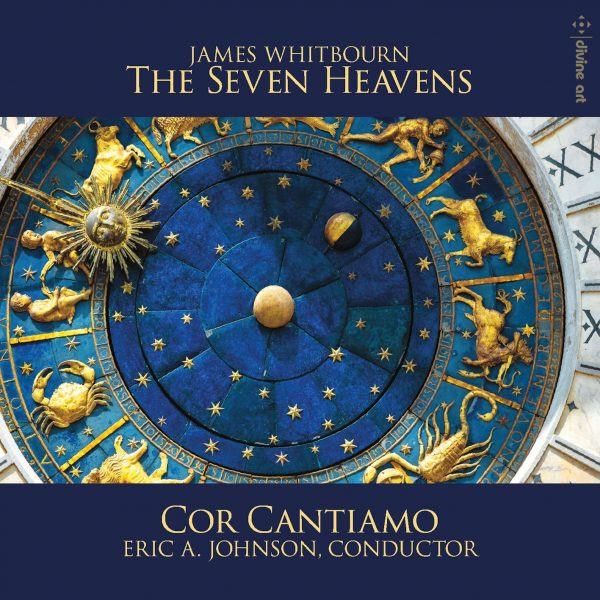British Music Society
The present CD provides the listener with a useful overview of James Whitbourn’s choral output – music that has gained steadily in popularity on both sides of the Atlantic. The Observer newspaper for example describes the composer as ‘a truly original communicator in modern British choral music’.
The choral cantata ‘The Seven Heavens’ takes up a significant part of this interesting disc and is full of interest.
It comprises a musical portrait of the Irish born writer C.S. Lewis – many-faceted figure – academic, author and Christian Mystic.
Originally written for chorus and large orchestra the present work has been transformed into a version for chorus and chamber ensemble. It consists of seven movements entitled The Moon, Mars, Mercury, Jupiter, Venus, Saturn concluding with The Sun.
The musical language is approachable throughout with a number of striking moments in evidence. It is scarcely surprising, that given the subject matter, there are references to the music of Holst but it is to Whitbourn’s credit that ‘The Seven Heavens’ manages to maintain its individuality throughout.
‘Venus’ provides a further poignant moment where there is some beautifully sustained writing for voices and instruments, reminding the listener of Lewis’s tragically short marriage. ‘The Sun’ draws various elements of the cantata together making a satisfying conclusion.
The second half of the CD is made up of seven choral pieces that further underline Whitbourn’s eclectic interests. ‘Ada’ is another musical portrait – this time that of the mathematician Ada Lovelace, the poet Byron’s only legitimate daughter and a key figure in the development of computer science. The composer’s programme notes clearly outline the structure of the piece as well as the thinking behind the instrumentation.
There follow six further pieces that exemplify the composer’s wide musical range. Mostly written as commissions for student choirs, these eminently practical works demonstrate a thoroughly accessible musical style.
A setting of the Anglican evening canticles brings the CD to a conclusion. Both the Magnificat and Nunc Dimittis are in imbued with a strong Hebrew flavour (more than a hint of Ernest Bloch) and make an intriguing end to the programme.
The quality of this disc is further enhanced by first rate performances and recording. Credit should go to the excellent chamber choir Cor Cantiamo. Clearly the conductor Eric A. Johnson knows what he is about – this disc is characterised by music making of a particularly high order.
@divineartrecordingsgroup
A First Inversion Company
Registered Office:
176-178 Pontefract Road, Cudworth, Barnsley S72 8BE
+44 1226 596703
Fort Worth, TX 76110
+1.682.233.4978












